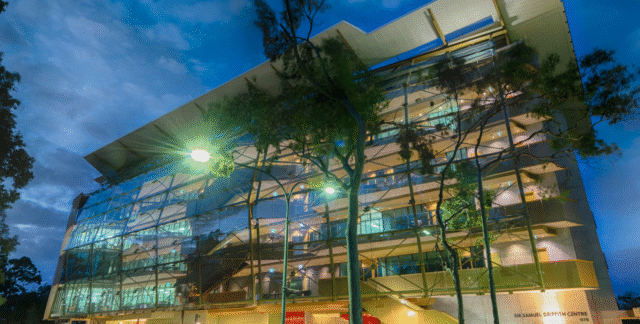Today the gender pay gap data of individual large businesses across Australia has been released by the Workplace Gender Equality Agency.
Some of these gaps are truly staggering: over 73% at one large non-profit health services provider, and 41.7% at Virgin Australia, which employs over 7,000 people.
“These gaps show us how much is wrong with the systems within organisations,” said SAGE CEO Dr Janin Bredehoeft. “They’re not publishing salary bands in job ads, they’re basing promotions on really subjective measures of merit, and they create cliques of the ‘chosen few’ employees who are offered work on the lucrative projects that lead to high bonuses. It all adds up.”
SAGE institutions are pulling ahead
The education and research sector fares a little better. For quite a while we’ve had a much smaller pay gap, with an average of 6.2%.
We now know that organisations implementing SAGE’s equity, diversity and inclusion framework are pulling ahead of their peers, right across both tertiary education and the medical research sector: the median gender pay gaps (for total remuneration) shows SAGE subscribers have a 7.9% gap, while non-subscribers average a 9.8% gap (just shy of a two percentage-point difference).
“This data gives us even more evidence that institutions working with SAGE are making sector-changing progress,” said Dr Bredehoeft.
However, we now know the pay gaps at some institutions are much higher – up to 21.5%.
“What’s important about this is the sector isn’t shying away from all the work that’s still to be done,” said SAGE CEO Dr Janin Bredehoeft. “The institutions we work with are building cultures of transparency—acknowledging the problem honestly— and making clear commitments to improvement.”
“It’s not about who’s doing better or worse. It’s about everyone pulling together, using an evidence-based change framework and collaborating through our networks to continually improve.”
Pay gap data isn’t enough
The newly published data is just one step in the change process.
“It doesn’t offer a quick fix,” says Dr Bredehoeft.
“The UK has had gender pay gap transparency in place for more than 6 years, and the data shows that the pressure on businesses has made very little difference. Businesses in Australia have also been reporting confidentially to WGEA for a long time, and in the last 10 years we’ve seen the national gender pay gap drop by only 7 percentage points.”
“The pay gap is stubborn—reporting doesn’t lead to equity.”
“So, yes, it’s good to know where institutions are up to. The other piece of the puzzle is knowing what they’re doing about it.”
Taking evidence-based action with SAGE
SAGE initiatives tackle the drivers of the gender pay gap by improving equitable recruitment, career progression, and respectful workplace culture. Some also explicitly strengthen oversight and transparency around pay equity.
Our participating institutions are more likely to have pursued gender equity initiatives against several measures:
- Almost all SAGE subscribers (97.1%) have analysed their gender pay gap data, compared to 57.9% among non-subscribers. Most (89.7%) have done so in the last four years, and 88.7% have taken action as a result of the analysis.
- 89.7% have a formal remuneration policy and/or strategy.
- 79.3% have included specific pay equity objectives in their formal policies and/or strategies.
- Among university subscribers, most (72.4%) have reported pay equity metrics (including gender pay gaps) to the executive or the governing body, with the majority (69%) identifying the cause(s) of the gap.
- Most (62%) have also conducted a review of remuneration decision-making processes.
“SAGE subscribers have accepted a challenge,” said Dr Bredehoeft, “to show up for a systematic, wholesale change process. They are willing to do the work—to ask who, what, when, where and why are there barriers to gender equity.”
“They make an intersectional action plan to dismantle those barriers and then to evaluate their success.”
“Then they do it again.”
Join us
SAGE welcomes new subscribers. Find out more here, or contact us at sage@sciencegenderequity.org.au



